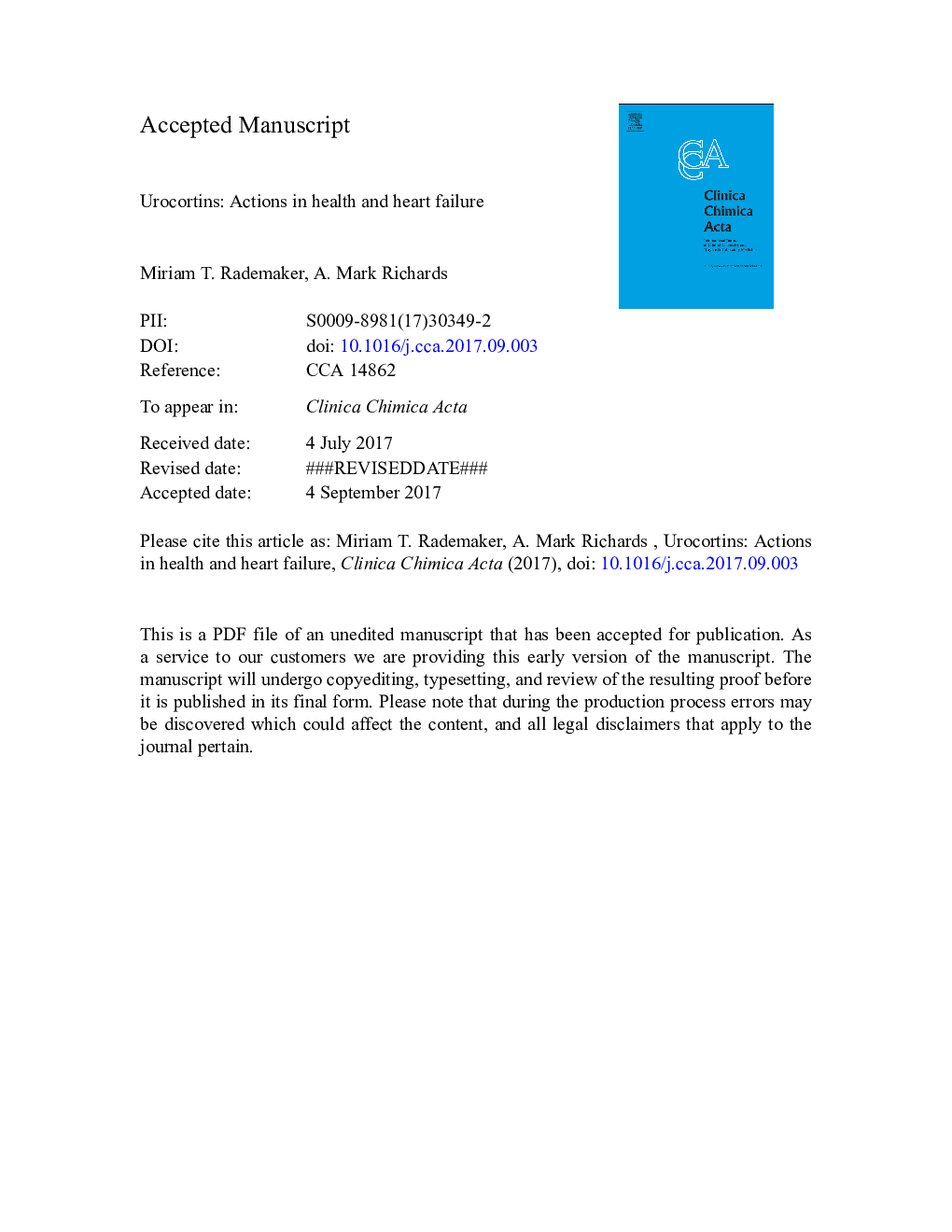| Article ID | Journal | Published Year | Pages | File Type |
|---|---|---|---|---|
| 5509553 | Clinica Chimica Acta | 2017 | 33 Pages |
Abstract
The urocortins (Ucns), endogenous peptides belonging to the corticotropin-releasing factor (CRF) family, are increasingly recognized as having diverse and important multi-system functions, especially within the cardiovascular system. The biological actions of the three Ucns (Ucn1, Ucn2, Ucn3) are mediated via G-protein-coupled CRF receptors, with both peptides and receptors widely distributed throughout tissues and organs contributing to pressure/volume homeostasis including the heart, vasculature, kidneys and adrenals. The Ucns activate a variety of signaling cascades in cardiomyocytes, vascular smooth muscle cells and endothelial cells including, but not limited to, adenyl cyclase/cAMP and several kinase pathways, with downstream effects comprising vasodilation, augmented cardiac contractility, and protection against hypoxic injury. Increasing evidence suggests the Ucns may be clinically significant molecules in the pathogenesis, treatment and/or management of several conditions, with some of the most compelling data demonstrating a therapeutic potential for the peptides in the setting of heart failure. Circulating levels of the Ucns are elevated in this setting, and antagonism of the endogenous peptides exacerbates manifestations of the syndrome in animal models. All three Ucns exert salutary hemodynamic, neurohormonal and renal effects in experimental heart failure and recent clinical trials have demonstrated hemodynamic benefits of Ucn2 administration.
Keywords
Related Topics
Life Sciences
Biochemistry, Genetics and Molecular Biology
Biochemistry
Authors
Miriam T. Rademaker, A. Mark Richards,
